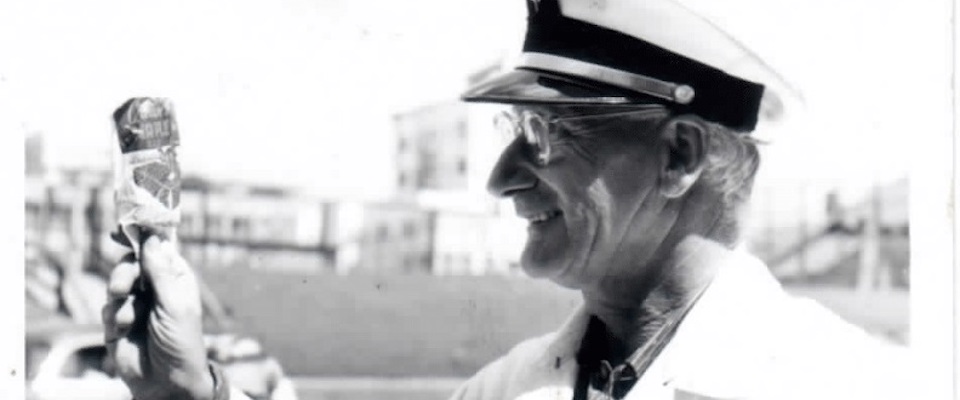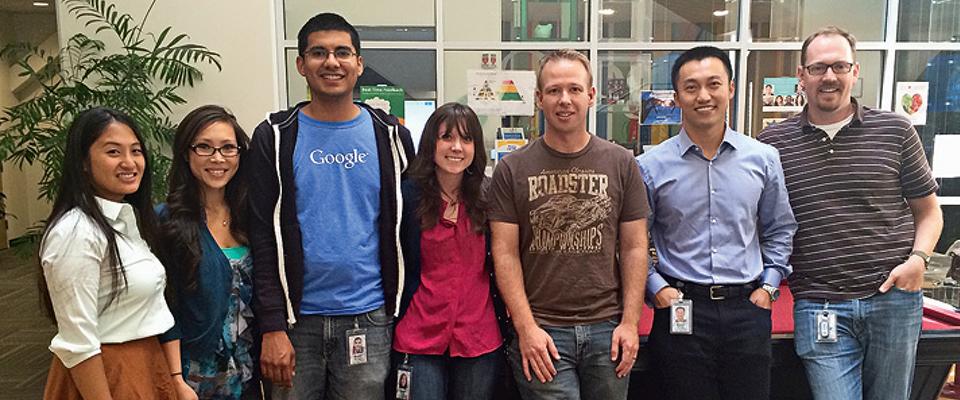Imagine craving a healthy gourmet meal and having it appear minutes later—fresh and piping hot—on the curb outside your front door for just $6. That’s the idea behind the startup SpoonRocket, launched by two UC Berkeley grads who aim to revolutionize the very concepts of fast food and delivery.
Enterprising engineering major Anson Tsui and social engineering major Steven Hsiao created a late-night delivery service called Late Night Option four years ago, while they were Cal students. Back then, they catered to their classmates’ cravings for junk food in the wee hours of the night; the city’s restaurants typically shutter their doors by 11 p.m. They operated under an array of targeted business names, most notably Munchy Munchy Hippoes, which peddled finals fuel such as deep-fried Oreos and Philly nacho cheese steak fries.
Tsui and Hsiao realized they had identified a gap in the market. But the duo decided to profoundly shift their collegiate-focused, junk food model, raising the caliber of the cuisine while whittling away the typical restaurant delivery time.
“We want SpoonRocket to be a new model of fast food,” says Hsiao. “We want it to be cheap, accessible, and have high quality ingredients. Fast food in general is bad for society. Just look at the obesity rates.”
They pitched their plan to Y Combinator—a prestigious incubator for budding entrepreneurs in Mountain View—in May, and launched at the end of June. In the wake of their eighth week, Hsiao says SpoonRocket has been so successful that it is ready to branch into new neighborhoods in San Francisco and Oakland; currently, it delivers to Berkeley and Emeryville. He declined to reveal how many meals the company is selling per day.
“These next two weeks we’re going to try and find a bigger facility,” says Hsiao. “Every day I get 10 to 20 emails from people in San Francisco asking us to expand.”
SpoonRocket supplements its website with iOS and Android apps, enabling customers to pull out their phones and order entrees with the click of a button. They also have an automated phone order system for customers who don’t have internet access.
Currently the business boasts seven delivery cars, each outfitted with a heating unit in the passenger seat that holds up to 60 entrée servings.
“In the typical delivery model, there’s a lot of time wasted,” says Hsiao. “When the customer orders the food, the restaurant has to make it and then send it out with the driver and by then, it’s been an hour. Once the driver arrives, the customer is scrambling around for money, and it always takes a while for them to come down…and then the driver has to go all the way back to the restaurant to start it all over again. It’s the old model of doing things.”
With SpoonRocket, their menu changes daily and always features two options—one carnivorous and one vegetarian—such as corned beef cabbage and roasted eggplant lasagna, or chili-glazed short ribs with roasted potatoes and oyster mushrooms, or rigatoni Sante Fe with sweet corn, black beans and yams in a tomato puree.
There’s little-to-no down time: Because the driver rarely has to return to the kitchen for more grub, delivery typically takes a mere 10 minutes. Customers place an order when they’re hungry, SpoonRocket issues an automated notification call two minutes before the driver arrives, and the customer strolls to the curb to retrieve a $6 lunch or supper. The company’s business model asks customers to pay a $40 per year membership, but to recruit newcomers, it is offering for a limited time free “lifetime membership.”
Hsiao explained that he and Tsui knew they had to offer a trifecta to make SpoonRocket a success: The food had to be swift and salubrious, but supremely, it had to be delicious.
So they hired David Cramer, a UC-Davis grad who gained his master chef designation from the Le Cordon Rouge Culinary School and worked at Napa Valley restaurants. “He was very excited when (we) contacted him,” says Hsiao. “He really saw the vision. He cares so much about sustainability and where we got our food. Right now, our ingredients are nearly 90 percent organic. And because we do such high volume we can get the price break—the same prices as Cal Dining and local hotels—to make it inexpensive for the customer.”
According to Hsiao, Cramer currently is cooking around the clock: “It’s a labor of love. David is committing to changing the world with us.” As an extension of that vision, SpoonRocket pledges that for every meal it sells, it donates a quarter to the UN’s World Food Programme, enough to cover the cost of feeding a hungry child somewhere in the world.
SpoonRocket also aspires to extend its reach, envisioning shipping refrigerated meals to far-flung outlets where they can be reheated and dispatched to curbside clients. And although SpoonRocket had narrowed its business hours from 11 a.m. to 11 p.m. to refine operations, fret not, late night noshers— 4 a.m. snack attack deliveries may return soon.
“We’re developing different menus for lunch, dinner and late night, still with two options—vegetarian and meat—per shift,” says Hsiao. “In the future, the company’s goal is to operate 24/7.”




















